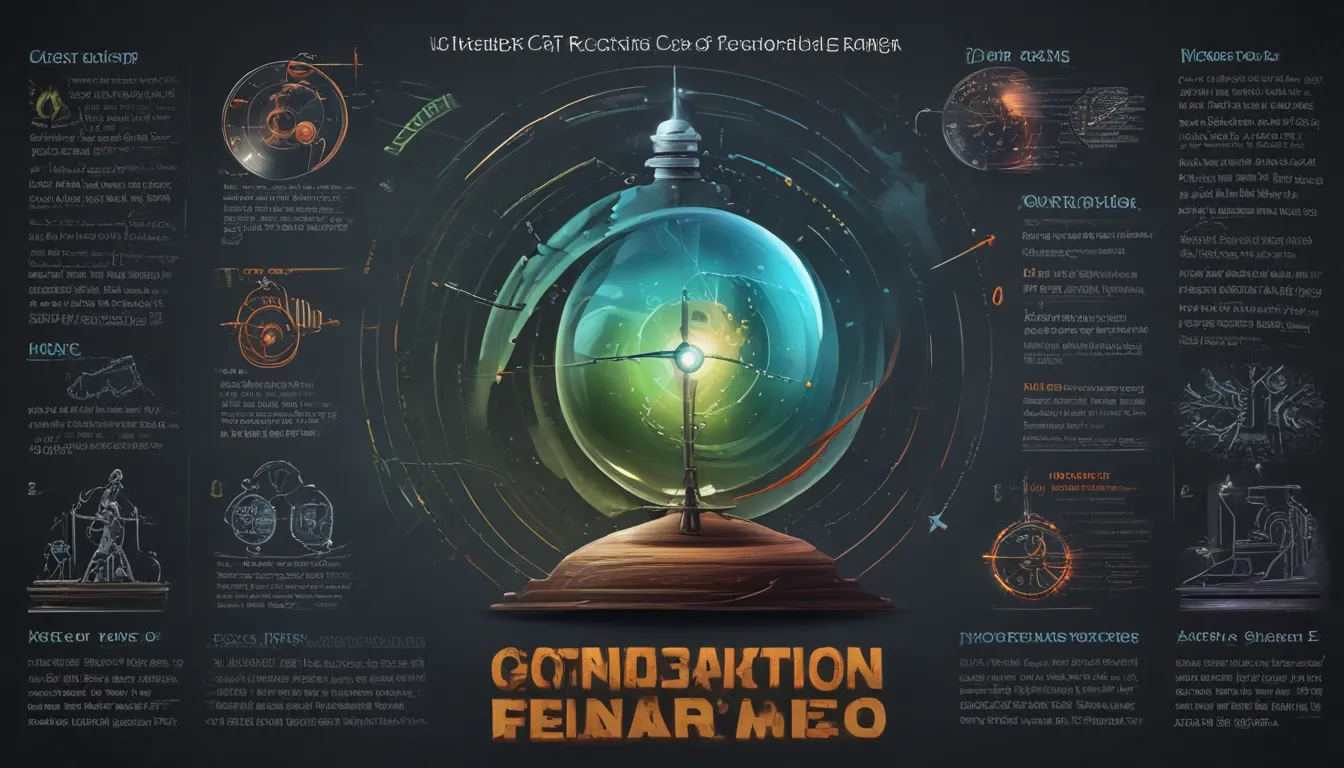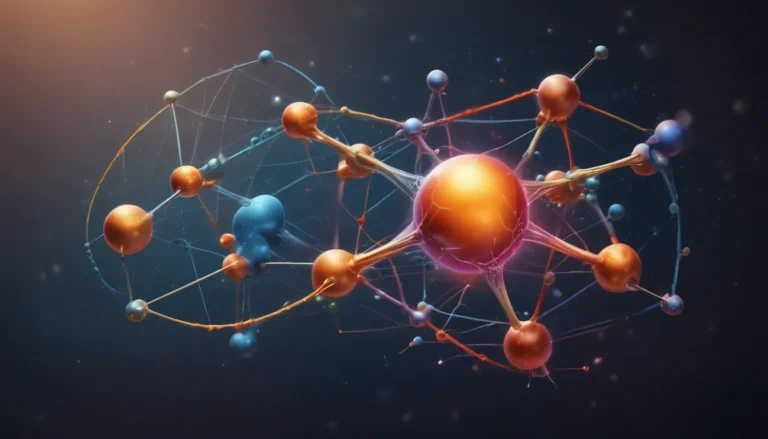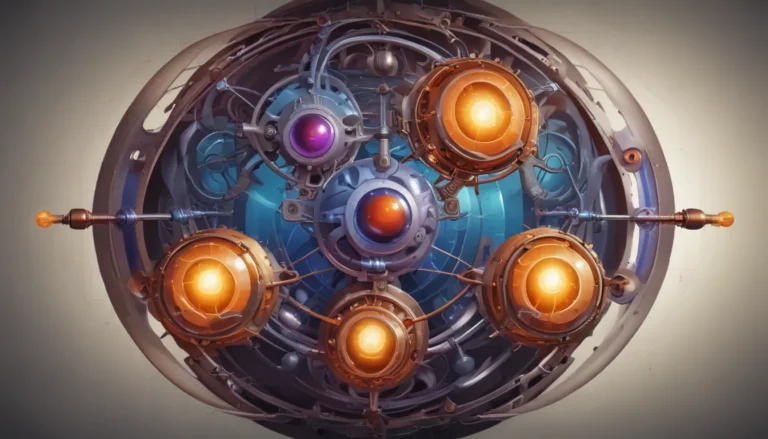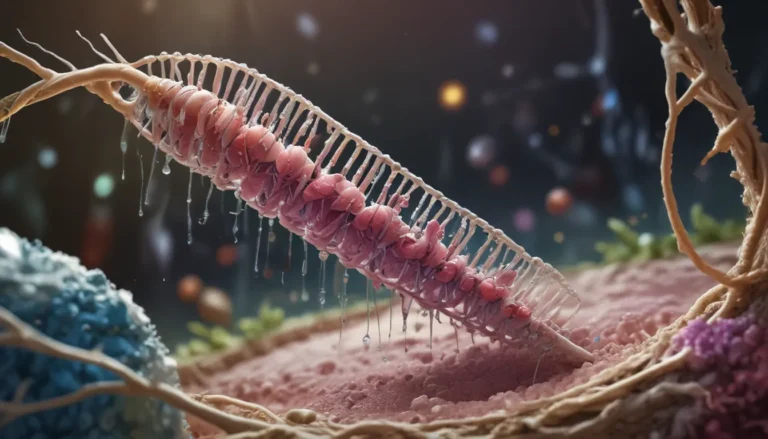A Note About Images: The images used in our articles are for illustration purposes only and may not exactly match the content. They are meant to engage readers, but the text should be relied upon for accurate information.
The Law of Conservation of Energy is a fundamental principle in physics that states that energy cannot be created or destroyed, but only transformed or transferred from one form to another. This concept plays a crucial role in understanding the behavior of energy and its various manifestations in the universe. While the idea may seem simple, there are several mind-boggling and unbelievable facts associated with this law that highlight its significance in our lives. In this article, we will explore 16 extraordinary facts about the Law of Conservation of Energy, delving into its implications in different fields, ranging from everyday life to the vast expanse of the cosmos. Get ready to be amazed as we uncover the mysteries of energy conservation and the unexpected twists and turns within this fundamental law.
Key Takeaways:
- Energy can’t be created or destroyed, only transformed. This law applies to all forms of energy and helps us understand how energy behaves in the universe.
- The law of conservation of energy is crucial in physics and allows us to calculate efficiency, develop energy-saving measures, and predict energy behavior in different scenarios.
Energy: The Unchanging Constant
-
Energy can neither be created nor destroyed: The law of conservation of energy, also known as the first law of thermodynamics, states that energy cannot be created or destroyed. It can only be transferred or converted from one form to another.
-
Applies to all types of energy: Whether it is kinetic energy, potential energy, thermal energy, or any other form of energy, the law of conservation of energy holds true for all types.
-
Based on the principle of total energy: This law is derived from the principle of total energy, which asserts that the total energy of a closed system remains constant over time.
Implications in Physics and Everyday life
-
Fundamental principle in physics: The law of conservation of energy is one of the foundational principles in physics, essential for understanding the behavior and interactions of energy in various systems.
-
Explains perpetual motion machines: This law explains why perpetual motion machines, which claim to produce more energy than they consume, are not possible as they would violate this fundamental principle.
-
Integral in chemical reactions: The law applies to chemical reactions, where energy is either released or absorbed in the form of heat, light, or other energy forms.
In the Field of Thermodynamics
-
Part of thermodynamics: In the realm of thermodynamics, the law of conservation of energy plays a crucial role in understanding the transfer and conversion of energy in systems.
-
An invariable universal law: This law applies universally, governing all physical processes occurring in the universe from the microscopic to the cosmological scale.
-
Calculation of efficiency: Through this law, the efficiency of various processes like engines or power plants can be determined by comparing the input and output energy.
Connecting with Related Concepts
-
Linked to entropy: The law of conservation of energy is closely related to entropy, which measures the disorder or randomness in a system.
-
Understanding energy transformations: This law helps explain how energy can be transformed from one form to another, such as potential energy converting into kinetic energy.
Practical Applications and Advancements
-
Developing energy conservation measures: Scientists and engineers leverage this law to develop energy conservation measures, optimize energy usage, and reduce waste.
-
Applicability to the entire universe: The law applies to all physical processes within the universe, guiding the behavior of energy on a vast scale.
Scientific Validity and Implications
-
Supported by extensive evidence: The law of conservation of energy is reinforced by numerous experiments and observations, providing strong evidence for its validity.
-
Cornerstone of modern physics: This law is a fundamental principle in modern physics and aids in understanding the behavior of particles and phenomena at the quantum level.
Predicting Energy Behavior
- Predicting energy behavior: By applying this law, scientists can forecast how energy will behave in various scenarios, advancing multiple scientific fields.
Conclusion: Understanding the Elegance of Energy Conservation
The Law of Conservation of Energy is a fundamental principle in physics that states energy cannot be created or destroyed, only transformed from one form to another. This principle holds far-reaching implications and is crucial in understanding natural phenomena and technological applications. Exploring the mind-bending concepts and incredible efficiency of energy transfer showcases the beauty and intricacy of this law. From explosive energy release in nuclear reactions to the graceful energy interplay in a pendulum, conservation of energy underpins our understanding of the physical world.
By unraveling these fascinating facts, we gain a deeper appreciation for the Law of Conservation of Energy and its role in shaping the workings of the universe. It reminds us of the profound interconnectedness of energy and matter, highlighting the unyielding conservation of this vital resource.
FAQs
- What is the Law of Conservation of Energy?
-
The Law of Conservation of Energy states that energy cannot be created or destroyed but can only be transformed from one form to another.
-
How does the Law of Conservation of Energy apply in everyday life?
-
This law applies in various ways in our daily lives, from energy conversion in our bodies during digestion to energy conservation in household appliances.
-
Can energy be lost completely?
-
According to the Law of Conservation of Energy, energy cannot be lost entirely; it can only change from one form to another.
-
Examples of the Law of Conservation of Energy in action?
-
Examples include electrical energy transforming to light energy in a bulb, potential energy converting to kinetic energy in a falling object, and chemical energy changing to mechanical energy in a car engine.
-
Relating to renewable energy sources?
-
The Law of Conservation of Energy emphasizes the importance of renewable energy sources, offering sustainable ways to convert and utilize energy without depleting finite resources.
-
Applicability in outer space?
-
Yes, the Law of Conservation of Energy applies universally, even in outer space, where energy is continually transforming and being conserved.
-
Exceptions to the Law of Conservation of Energy?
-
This law is a fundamental physics principle observed under all known circumstances, without exceptions so far.
-
Energy in nuclear reactions?
- Energy in nuclear reactions can transform from matter to energy or vice versa, but the total amount remains constant, adhering to the Law of Conservation of Energy.






